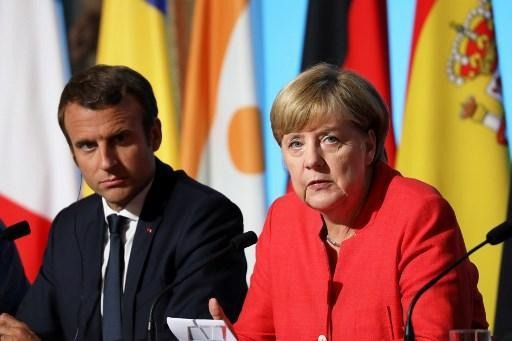Chancellor Angela Merkel and President Emmanuel Macron are favourable to making the EU sanctions against North Korea “harsher” after it tested a hydrogen bomb, the German government revealed on Sunday.
During a telephone conversation, the two German and French leaders said “the most recent provocation from Pyongyang is the biggest yet”, according to a press release.
North Korea has “disregarded international law” through this “escalation”. “The United Nations Security Council and the European Union have to act”, the press release says.
“The Chancellor and President Macron have come out in favour of stronger EU sanctions against North Korea”, it said.
Sanctions have been applied since 2006, to help the international community’s efforts to stop the North Korean government testing nuclear weapons and try and force them to respect UN resolutions.
The European sanctions mainly involve trade blocks and travel restrictions for those close to the North Korean government.
The latest EU sanctions were brought in just a few weeks ago. They were drawn up at the beginning of August.
The UN Security Council also adopted a seventh group of sanctions at the beginning of August. They were put in place to prevent North Korea getting their hands on the necessary principal raw materials through their lead, iron, mineral and exports and fishing.
By admitting to a successful nuclear bomb test on Sunday, North Korea has drawn harsh criticism from the international community, including its main ally China. Pyongyang says the bomb is hydrogen.
International organisations also shared their indignation on Sunday. The International Atomic Energy Agency (IAEA) has criticised this “extremely regrettable” incident and “complete disregard” for international demands.
NATO, through its general secretary Jens Stoltenberg, said it was “worried about the destabilising character of Pyongyang’s attitude, as it threatens regional and international security”.
(Source: Belga)

